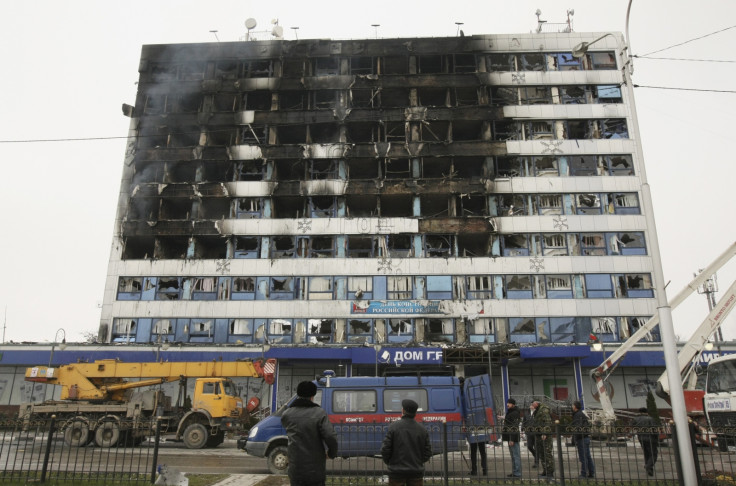Grozny attack: Who are Chechnya's Islamist insurgents the Caucasus Emirate?

The violent Islamist offensive in the Russian province of Chechnya represents the worst attack the restive region has suffered in years, stoking fears of a renewed insurgency in the subsided North Caucasus area.
The assault was carefully planned to coincide with Russian President Vladimir Putin's annual state of the nation address, which focused on the Ukraine crisis and the danger of recession.
Islamist militants, wearing security service uniforms, hijacked three taxis and drove to Grozny, Chechnya's capital. After infiltrating the city, the militants seized a publishing house building and exchanged heavy gunfire with police. Russian forces recaptured the building and reportedly killed all the rebels inside.
Other attackers who barricaded themselves inside an empty school were also killed, according to Russian officials. A total of nine militants and 10 police officers died in the fighting. A further 28 policemen were injured.
The methodology of the assault recalls the one used by three fighters in October 2010 who claimed to be a lawmaker's bodyguards and stormed the parliament, taking several hostages. The two attacks bear the mark of the largest Islamist militant group in the area, the Caucasus Emirate, which is also blacklisted in the US.
Revenge attack
The group released a YouTube video saying that the assault was in retaliation against the "apostates" for the "humiliation of Muslim women" carried out by security forces of Chechen strongman Ramzan Kadyrov and were under the orders of Islamist leader Aslan Byutukayev, also known as Emir Khamzat. They also pledged loyalty to Abu Mukhammad, who has been nominated head of the emirate after the death of Doku Umarov.
Umarov was not only Russia's most wanted man but also on the wanted lists of the United States and the United Nations Security Council for his terrorist activity within Russia. Some of the attacks Umarov organised include a suicide bombing that killed 37 people at a Moscow airport in January 2011 and the "Nevsky Express" 2009 train explosion which killed 28 people.
Another two-minute video clip on YouTube featured an anonymous participant in the battle claiming that many fighters entered the city and "destroyed many vehicles and armored columns".
Chechnya Republic president Ramzan Kadyrov flagged the possibility that the attackers may have come from outside Chechnya, claiming that the insurgency in the region can no longer launch large-scale offensives. However, security forces said the fighters came from Shalazhi in the Urus Martan district south-west of the capital.
The pan-Caucasian and Islamist Caucasus Emirate stemmed from the Chechen nationalist struggle for independence in the 1990s. It was proclaimed in October 2007 by Umarov after he stepped down as president of the Republic of Ichkeria, which declared secession from Chechnya. Among the group's goals is to establish an independent Caucasus Emirate ruled under Shariah law and to wage global jihad.
Chechnya and Isis
After Kadyrov's promised crackdown on militant groups, Chechnya has enjoyed a period of relative peace. Russia has fought two deadly wars with Chechen separatists since the fall of the Soviet Union and channelled funds to rebuild Grozny in recent years. Strong security measures have been put in place to avoid terrorist attacks. Putin long promised to prioritise the fight against Islamist insurgents in the area. Kadyrov has been criticised by rights organisations for his authoritarian style and human rights abuses.
In the past few years, hundreds of Chechen fighters joined the Islamic State (Isis) in the Middle East. In a recent video, Isis threatened Putin to come to Russia and "free Chechnya".
One of the group's prominent military commanders, Omar al-Shishani, is a Georgian-born ethnic Chechen. With a deep hatred for the Kremlin, he played a role in the 2008 Russia-Georgia War, spying on Russian tanks and relaying their positions back to Georgian artillery.
Some social media users have called Shishani "Tarkhan the Rodent" in reference to his real name, Tarkhan Batirashvili. Shishani itself translates as "the Chechen" in Arabic.
© Copyright IBTimes 2025. All rights reserved.




















